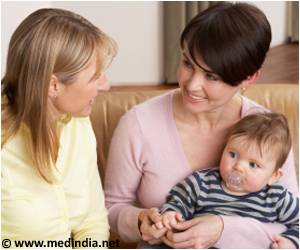A new study reveals that young children who who come up with explanations while learning are connected to new ideas with prior cause and effect knowledge.

In order to examine the potential benefits of explanation-based learning, Legare and her collaborator, Tania Lombrozo of the University of California at Berkeley, presented 182 preschoolers from age 3 to 6 with a mechanical toy composed of colorful, interlocking gears with a crank on one end and a propeller on the other.
Legare examined that when teachers and parents asked children to explain "why" and "how," they gave them an opportunity to think like scientists and this approach was effective in and outside the classroom.
The study concluded that, the explainers across all age groups outperformed other children to understand the cause-and-effect operations of the toy and they were also better at rebuilding the toy and to transfer that new knowledge to other learning tasks.
The study has been published in the Journal of Experimental Child Psychology.
Source-ANI








